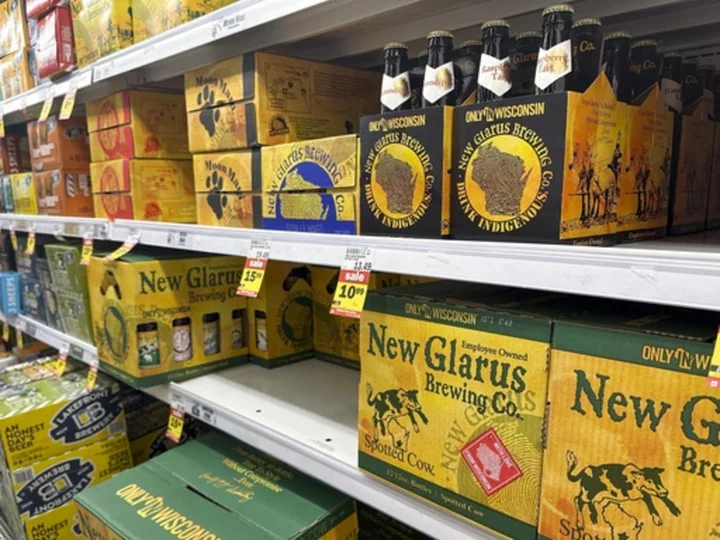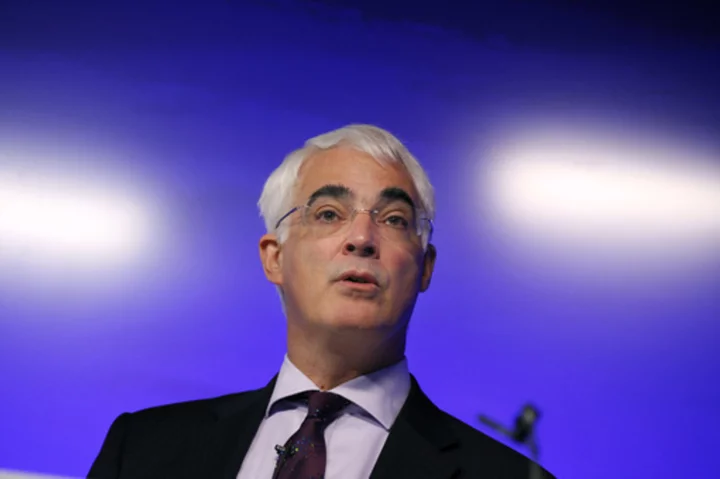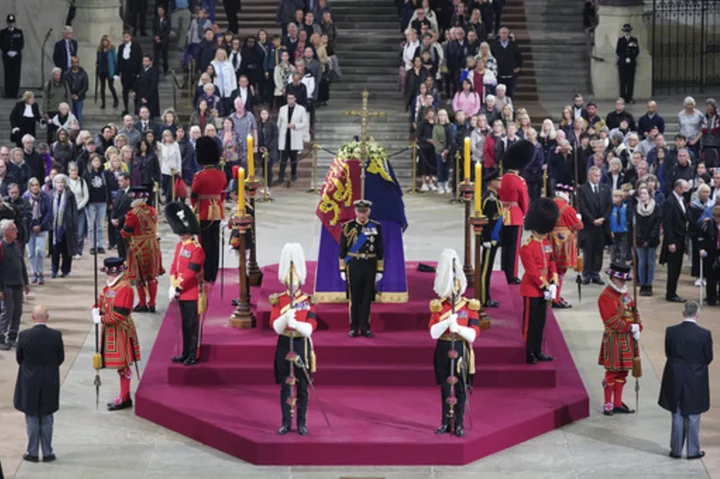MADISON, Wis. (AP) — The laws governing Wisconsin's multibillion-dollar liquor industry can be streamlined and updated under a sweeping measure passed by the state Assembly on Wednesday that's supported by groups from the smallest craft brewers to the largest national brewers, bar owners and alcohol distributors.
The massive overhaul to the laws affecting the production, distribution and sale of alcohol passed with broad bipartisan support. The measure now heads to the Senate for final approval. Democratic Gov. Tony Evers, who was involved with discussions of the measure, is expected to sign it into law.
The proposal would create a new division within the state Department of Revenue, which would be in charge of overseeing and enforcing the state's alcohol laws. The absence of such a unit now has led to inconsistent enforcement of the law — and questions over how they affect new businesses that weren't envisioned when the laws were enacted, supporters of the bill said.
Those who worked on the measure with Republican legislative leaders say now is the time to update laws in a state that saw the birth of beer-giant Miller in Milwaukee and in recent years has seen an explosion of craft brewers, like New Glarus Brewing Co. which makes Spotted Cow and other beers available for sale only in Wisconsin.
“Alcohol has a rich history in the state of Wisconsin but it does need to be regulated,” said the measure’s Republican cosponsor, Rep. Rob Swearingen. “It’s regulated because we’re not selling chocolate milk. We’re not selling Jolly Good Soda.”
He said the measure offers good compromises with all the key members of the alcohol industry.
“I can tell you that all of them love some of it and all of them hate some of it,” Swearingen said ahead of the vote. “But at the end of the day, this is the package that they themselves, the stakeholders, put together.”
Democrats also praised the measure, which passed on a bipartisan 90-4 vote.
“It’s a good bill,” said Democratic Rep. Christine Sinicki. “It’s a compromise bill.”
The bill affects every level of the state’s alcohol industry governing the licensing, producing, selling and distribution of beer, wine and liquor. The so-called three-tier system, created in the 1930s, has been eyed for changes for years, but policymakers and the alcohol industry have been unable to reach agreement.
The three-tiered system was designed to prevent monopolies, so the same company could not produce and sell alcohol at the wholesale and retail levels. But for years the system has been criticized for not keeping up with changes in the industry, including the explosion of small craft breweries and the rising popularity of wedding barns.
The bill would require venues that provide alcohol at special events, known generally as wedding barns, to be regulated in a new way. They could either get a permit that would allow them to host events six times a year or no more than once a month — or obtain a liquor license that would allow them to sell alcohol at as many events as they wish.
Wedding barn owners mounted the loudest objections to the measure, saying the new requirements would be too expensive and onerous, and would put them out of business. Many wedding barns do not currently have liquor licenses. They instead contract with others who bring alcohol to the barns for events.
Assembly Speaker Robin Vos, who helped broker the deal resulting in the bill, downplayed concerns of wedding barn owners.
“I love the wedding barn industry," Vos said ahead of the vote. "I think it’s great that we have entrepreneurs who do it, but they have to follow the law, they have to follow the rules.”
Supporters of the changes say they level the playing field between wedding barns, which don't need a license, and banquet halls, taverns and others who must get liquor licenses to operate.
The bill would also allow for expanded hours at wineries and would regulate them the same as craft breweries and distilleries. It would permit brew pubs to operate stand-alone retail stores and allow craft breweries to sell products from other out-of-state breweries. The bill would also create new guidance for contract brewing, winemaking and distilling, which is a growing segment of the industry.
The measure also creates a new statewide bartender license. Currently, bartenders are licensed by local municipality, a system that proponents of the change argued is cumbersome. It also allows for bars in 14 southeastern Wisconsin counties to stay open two to four hours longer than the current 2 a.m. limit — during the Republican National Convention next summer in Milwaukee.
The measure has broad support. Its backers include Anheuser-Busch Companies, the Tavern League of Wisconsin, Kwik Trip, Molson Coors Brewing Co., New Glarus Brewing Company, the Wisconsin Craft Beverage Coalition, the Wisconsin Grocers Association, and the Wisconsin Wine and Spirit Institute.









